Posts in Category: Sober living
Why Do Alcoholics Have Red Noses?
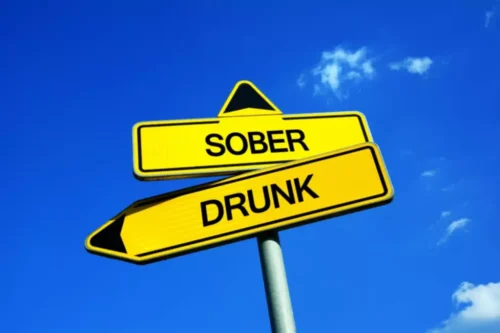
The breathtaking mountains surrounding our center are the perfect place to heal. Our magnificent location offers unique opportunities to reconnect with your true self and rediscover your love of life. In some cases, alcohol use can worsen symptoms of pre-existing rhinophyma – but it is not an underlying cause.

How Is Alcoholic Nose Treated?
But if your red nose is affecting your self-esteem, causing you discomfort or resulting in judgement from others, then surgery is a viable option. These conditions are not life-threatening and it is possible to live with them. However, if a man develops rosacea then he will usually have more severe symptoms than a woman. Men are more likely to develop rhinophyma than women, although it has been diagnosed in women.
Red Nose Alcohol Causes
If you or someone you love is struggling with alcohol abuse and addiction, The Recovery Village at Palmer Lake can help. Located on a 15-acre campus in the beautiful mountains of Colorado, our state-of-the-art facility can provide you with the ongoing support needed for lifelong addiction recovery. Contact us today to learn more about treatment programs that can help you begin the journey to a healthier, alcohol-free future.
The Stigma Of Addiction And Alcoholic Nose
- If you’re struggling with alcohol addiction, many treatment options are available.
- Surgical therapy, along with topical treatments, are incredibly effective for helping return the nose to its original shape without harming the bone and cartilage structures.
- This is a great tool for those looking to stop drinking because of alcoholic nose.
This is known commonly as ‘alcoholic nose’ and is an upsetting and concerning side effect of drinking too much. As the alcohol red nose condition is assumed to be an effect of drinking excessively, it comes with a lot of negative stigmas. This is why someone with an alcoholic nose is usually shunned for it in society. The fear of judgment makes it difficult for people suffering from the condition to step forward and seek proper help and treatment. There is a misconception that being an alcoholic will cause you to form a bulbous and red nose. That nose, sometimes called “drinker’s nose” or “alcohol nose” is actually known as rhinophyma, a side effect of rosacea.
- The main treatment option for rhinophyma is surgery; however, there are some medications that may provide a small degree of help.
- With others, taking the medication too soon before or after a drink could put too much stress on your liver or cause sedation.
- However, excessive alcohol consumption can certainly make things worse for those already predisposed to rosacea and rhinophyma.
- Alcohol is not the only cause of a red or enlarged nose – rosacea and rhinophyma can both develop without the use of alcohol.
- Alcohol is a vasodilator, which means it increases blood flow to the skin’s surface, causing redness and inflammation.
Rhinophyma causes the nose to become even more disfigured due to the progressive dilation of the nasal vessels as well as the involvement of cysts and pustules. While alcohol nose is a visible symptom, it is just one example of how alcohol drug addiction consumption can impact overall health. Heavy drinking affects the body in numerous ways, often leading to systemic issues that go far beyond the skin. Rhinophyma develops as a severe form of rosacea, a long-term skin disorder characterized by redness and inflammation. Left untreated, rosacea can progress to the advanced stages that result in thickened, bulbous nasal skin.
Over time, excess tissue and thickening of the skin can lead to a swollen appearance and nose growth. Another side effect that is generally alcoholic nose connected to excessive consumption of alcohol is an alcohol red nose. Popularly known as “alcoholic nose,” the condition is when someone develops a red, enlarged, bulbous-looking nose. It is commonly believed that the alcoholic red nose stems from alcohol abuse or chronic addiction.
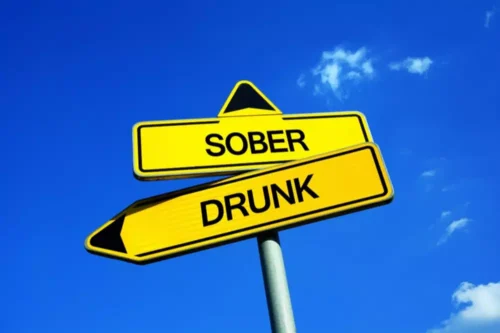
Will My Red Nose Go Away if I Stop Drinking?
Blood vessels expand and sometimes break, making some heavy drinkers look red and flushed even when sober. Excessive consumption of alcohol may also lead to the development of spider veins on the face. As mentioned previously, the best way to prevent rosacea flare-ups caused by alcohol consumption is to stop drinking alcohol. At Springbrook Behavioral Hospital, you can find the support you need to stop drinking for good. Alternatively, someone who suffers from alcohol addiction may feel like their rosacea is a constant, visible reminder of their struggles. Fortunately, it is possible to manage symptoms of rhinophyma to lessen their impact on daily life.
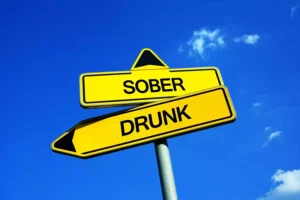
Alcoholic nose is a slang term used to describe the red, swollen nose that is thought by some to accompany chronic alcohol use. While this stereotype does have some element of truth to it, there is some debate on how much alcohol actually affects the appearance of your nose. People who may benefit from alcohol treatment programs may be deterred from taking initial steps in seeking treatment. They may be afraid they will feel shamed by other people’s judgments of alcohol abuse. The social stigma related to alcohol abuse and alcoholic nose highlights the social pressures and barriers that still exist for those with substance abuse issues.
Alcohol Red Nose: Am I Prone to Developing an Alcoholic Nose?
These effects can exacerbate the appearance of redness and swelling in the face. The Forge Recovery Center is more than an addiction center, it’s a community devoted to recovery and long-term sobriety. Our evidence-based treatment for alcoholism is guided by a trauma-informed philosophy recognizing the needs and dignity of our clients.
Mixing Meth and Alcohol: Can You Drink on Meth?
Recommended alcohol intake guidelines advise up to one standard drink per day for women and up to two standard drinks per day for men. We will also delve into the long-term effects of these substances and the impact they can have on an individual’s quality of life. Whether you or someone you know is struggling with addiction, or you simply want to learn more about the effects of these drugs, this article is a must-read. Methamphetamine and alcohol are two of the most commonly abused substances worldwide, and while they differ greatly in their chemical makeup and effects on the body, they share several similarities. Nearly 1 in 3 Americans between 12 and 17 received some form of mental health treatment in the past year, an increase of roughly half a million. But SAMHSA officials cast the increase as a positive development, arguing it mostly reflected increased treatment availability and reduced stigma, rather than an overall decline in teen mental health.
Why Is It Dangerous to Mix Meth with Alcohol?
It is suggested that the synergistic effect of these drugs may influence drug reinforcement to each other and predispose smokers to become alcoholics and vice versa [110,117]. Interestingly, an additive effect on dopamine release in the nucleus accumbens shell was found between alcohol and nicotine in rats [116]. This additive effect on dopamine release was inhibited by mecamylamine pre-treatment, a nicotinic receptor antagonist, suggesting the involvement of nicotinic receptors in the reinforcing effects of alcohol. Importantly, alcohol-induced dopaminergic neurons firing in ventral tegmental area were inhibited in mice lacking nicotinic acetylcholine receptors that contain α6 subunit [118]. Moreover, it has been shown that alcohol and nicotine co-abuse can increase the pleasurable effects of each drug [119] (Table 1). This may explain some of the pharmacological mechanisms of action involving the co-abuse of nicotine and alcohol in the modulation of dopamine release (Figure 3).
Behavioral Treatments
The process of going through the initial withdrawal when stopping use of each substance can be overwhelming. METH’s main mechanism of action is its ability to increase in neuronal release of DA into the NAc, an effect mediated via alterations in both the DAT and the vesicular monoamine transporter-2 (VMAT-2) [112]. In addition, METH phosphorylates DAT via protein alcohol and aging effects kinase C leads to internalization of DAT, thus impairing the normal function of DAT [113]. Concurrent with reuptake inhibition, METH also induces DA efflux into the synapse (Figure 8). Positive (+) or negative (-) interactions among six neurotransmitter systems in the brain. Effects of alcohol on cocaine and benzoylecgonine pharmacokinetic parameters [33].
Former poster girl for the Esther Foundation speaks out over alleged exorcisms and abuse
Reduce overdose risk and access to lethal means of suicide through harm reduction programs including syringe services programs, access to overdose prevention medications like naloxone, and promoting safe storage of all firearms. Substance use disorders and addiction aren’t choices you make — they’re mental health conditions that can have long-term effects on your health and well-being. For instance, your heart rate may speed up, slow down, and then speed up again, because your body metabolizes each drug at different rates. These rapid changes can put a lot of strain on your body, to the point where you need emergency medical attention. If you feel calmer when drinking alcohol, you might assume it’ll help you feel less restless or jittery when you take meth. But other effects, like increased energy or higher body temperature, can linger for hours.
What are the principles of effective treatment?
The evidence suggests that the free and flexible assistance provided by mutual-support groups can help people make and sustain beneficial changes and, thus, promote recovery. Alcohol-related problems—which result from drinking too much, too fast, or too often—are among the most significant public health issues in the United States. For more information about alcohol’s effects on the body, please visit the Interactive Body feature on NIAAA’s College Drinking Prevention website. They can also refer you to a treatment center and answer any questions you may have. If you — or your loved one — are ready to get treatment, you may find it helpful to bring a supportive friend or family member into the fold. If that happens, consider seeking out additional resources or find a support group for family members or friends of people living with addiction.
“No, it’s not. Not to me. I hadn’t had achievement for a long time in my life. While Mr Hall acknowledged many staff had come straight out of the rehabilitation program, he said they had “valued lived experience” https://sober-home.org/inhalant-abuse-short-and-long-term-effects-of/ and went through training to become support workers. “I got a sense very quickly that these people didn’t really know what they were doing. But I was homeless. And I was desperate for change.”
- The evidence suggests that the free and flexible assistance provided by mutual-support groups can help people make and sustain beneficial changes and, thus, promote recovery.
- Long-term use of methamphetamine can lead to damage to the heart and blood vessels, kidney damage, liver damage, and neurological problems such as memory loss and cognitive impairments.
- Although an intervention may motivate your loved one to seek treatment for an addiction, it could also have the opposite effect.
- Likewise, individuals at higher levels of alcohol problems (i.e., higher AUDIT scores) may be more sensitive to the effects of alcohol in precipitating MA use or vice versa.
This can also make things more dangerous because the meth stays in the body for longer, and the risk of meth overdose increases if the person consumes more of the drug. There is no such thing as a safe level of alcohol consumption when taking meth. Even if you think you are in control, the effects of both substances on the brain can still create potentially life-threatening side effects. Mixing alcohol and meth can have devastating effects on a person’s physical and mental health.
Meth alone depleted dopamine and serotonin in the striatum, as well as serotonin in the prefrontal cortex when measured 1 week later. Cyclooxygenase inhibition by ketoprofen during EtOH drinking blocked the increases in LPS and COX-2 https://sober-house.net/watch-out-alcohol-and-anxiety-causes-risks-and/ and the enhanced decreases in dopamine and serotonin produced by Meth. Therefore, prior EtOH drinking causes an increase in inflammatory mediators that mediate a synergistic interaction with Meth to cause an enhanced neurotoxicity.
You may receive a voucher or other reward in exchange for drug-free urine samples. When people enter treatment, addiction has often caused serious consequences in their lives, possibly disrupting their health and how they function in their family lives, at work, and in the community. Behavioral therapies help people in drug addiction treatment modify their attitudes and behaviors related to drug use. As a result, patients are able to handle stressful situations and various triggers that might cause another relapse. Behavioral therapies can also enhance the effectiveness of medications and help people remain in treatment longer. Additionally, medications are used to help people detoxify from drugs, although detoxification is not the same as treatment and is not sufficient to help a person recover.
He contributed this success to the work of public health officials but also said there’s significant work remaining. Mark S. Gold, M.D., is a pioneering researcher, professor, and chairman of psychiatry at Yale, the University of Florida, and Washington University in St Louis. His theories have changed the field, stimulated additional research, and led to new understanding and treatments for opioid use disorders, cocaine use disorders, overeating, smoking, and depression. AA meetings are free and nonjudgmental, and they are available day or night and even multiple times a day in many cities. Successful AA members usually become sponsors once they have been senior members in recovery for at least a year.
Alcohol’s effects on the body
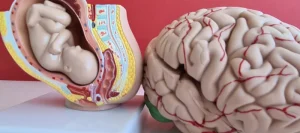
Some individuals may need additional help breaking their addiction to alcohol. No matter what stage of alcoholism someone is currently experiencing, there is hope to get through their alcohol addiction. Medically-supervised detox followed by an inpatient treatment program can increase the likelihood of successful recovery and help people regain control. For more information on the stages of alcoholism for functioning alcoholics, contact us today. Alcoholism can take a devastating toll on a person’s physical health, emotional well-being, personal relationships and professional life. However, many alcoholics manage to function effectively, holding down jobs and maintaining households.
- Sarah Allen Benton, M.S., LMHC., LPC, is a licensed mental health counselor and author of Understanding the High-Functioning Alcoholic.
- This façade may hold up for months or even years, but eventually, the addiction will take over, and cracks will begin to appear.
- It should not be used in place of the advice of your physician or other qualified healthcare providers.
What Are the Long-Term Health Risks of Being a Functional Alcoholic?
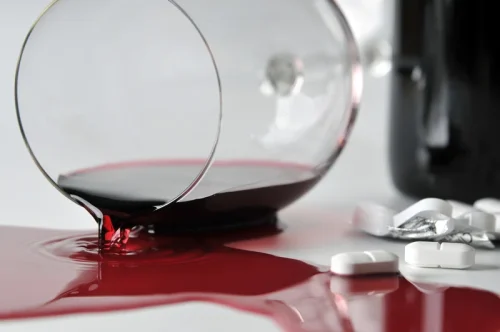
Possible physical side effects include increased blood pressure and liver damage. In the morning, their hands may shake and they may experience frequent heartburn. During this stage, individuals are drinking every day, usually to avoid uncomfortable withdrawal symptoms. However, many people still believe they are “functioning” because they are able to get up and go to work. Although they still have a job, their performance is probably not what it used to be.
- Both binge drinking and heavy drinking patterns increase a person’s risk of AUD and are common behaviors among people with AUD.
- Most work full time and have stable relationships along with high earnings.
- Consider talking with someone who has had a problem with drinking but has stopped.
- Functional alcoholics can regain control over their lives and find the support they need to thrive in sobriety.
- Family members may need to hold an intervention for their loved one with alcoholism.
What is a Functional Alcoholic? Meaning, Signs and Effects
But as you continue to drink, you become drowsy and have less control over your actions. Alcohol withdrawal can begin within hours of ending a drinking session. Mission Harbor is dedicated to treating Santa Barbara County and Los Angeles County with specialized mental and behavioral health programs in a convenient outpatient environment.
Impact of Being a Functional Alcoholic
You can also dispel some of the myths and stereotypes about alcoholics that I have written about in other blog posts on this site and in my book Understanding the High-Functioning Alcoholic. You can help to slowly chip away at his or her denial, but it is also important to come from a place of compassion and not from a position of judgment. Recovery from substance use disorders (SUDs) is an ongoing process and those fortunate to have long-term recovery share one thing in common—an ability to recommit. The recovery process from Substance Use Disorders (SUDs) has evolved over time. It also shifts for individuals throughout the course of their sobriety.
People with high-functioning alcoholism tend to drink every other day and consume five or more drinks per sitting. They are also the most likely of all the alcoholic subtypes to be college-educated, and the least likely to use illegal drugs. Essentially, a high-functioning alcoholic is a person who is addicted to alcohol but has yet to really suffer from the negative consequences of their drinking. A high-functioning alcoholic may experience some consequences related to their drinking, but they are not enough to limit their ability to maintain their responsibilities.

These achievements often lead to an increase in personal denial as well as denial from colleagues and loved ones. Close family members are almost always affected by a loved one’s substance use disorder. Family dynamics with a functional alcoholic can be unpredictable, stressful, and even frightening, especially to children. It’s not as easy to pinpoint whether or not someone you know is a functional alcoholic. If a person is succeeding at work, looks happy with their family, and has no outward signs of distress, how can you tell if someone is addicted to alcohol? According to the National Institute on Alcohol Abuse and Alcoholism (NIAAA), an estimated 85.6 percent of people aged 18 and older reported drinking alcohol at some point in their life.
What are the risk factors for high-functioning AUD?

Functional alcoholics may not even realize they’re actively concealing symptoms of their disorder. Many people with alcohol use disorder hesitate to get treatment because they don’t recognize that they have a problem. An intervention from high functioning alcoholic loved ones can help some people recognize and accept that they need professional help. If you’re concerned about someone who drinks too much, ask a professional experienced in alcohol treatment for advice on how to approach that person.
Ever read your medical record? Here’s why you should
Although you might not hit all the criteria for the condition, and the impact on your life may appear minimal, AUD is a chronic and progressive condition. This means the negative impact on your life will likely grow, and the condition will not get better on its own without treatment. There is research showing that about 19.5 percent of people with AUD are middle-aged, well-educated, and have stable jobs, homes, and families. This could include people with high-functioning AUD, but these criteria are not definitive characteristics. There are no official diagnostic criteria for what it means to be high functioning.
Still, social media posts making the debunked assertion that Harris cannot serve as President went viral soon after Biden announced Sunday that he was dropping out of the race and would back Harris for President. Wernicke-Korsakoff syndrome is a degenerative brain disorder that causes mental confusion, vision problems, lack of coordination, and memory problems, among other symptoms. Mutual-support groups like Alcoholics Anonymous (AA) and inpatient rehabilitation are common treatments for alcohol problems. As mentioned above, the DSM-5 says an AUD diagnosis requires at least 2 of the 11 symptoms of alcoholism listed above to have occurred within the previous 12 months. There is a cumulative impact that can lead to an increase in stress that builds up over time. This particular holiday season may pose greater challenges than those in the past for individuals in early sobriety.
Recovery Housing Program U.S. Department of Housing and Urban Development HUD
Most sober living homes require residents to pay their own rent and do chores. With some exceptions, sober living homes usually aren’t eligible for insurance coverage because they’re not considered a treatment facility https://www.celine-bags.org/luxurious-slumber-bags-for-girls-and-boys-for-gift/ by the government. This is because sober living homes don’t offer treatment as rehab facilities do. While this seems like a disadvantage, paying rent can help a resident continue responsible financial habits.
- Each residence will have different rules about drug testing but may include both scheduled and random drug tests.
- Many patients don’t realize the toxicity of prolonged alcohol abuse and how it affects the body.
- Some will work with you on a payment system, allowing the individual or their loved ones, to pay for the services over an extended period of time.
How are They Different from Halfway Houses?
However, there are mixed-gender homes and homes that specifically cater to LGBTQ+ people. If you are choosing this type of residence, you’ll want to add your name to the waiting list as soon as possible and follow up regularly. Many low-cost programs are looking for residents who can show commitment to their recovery. Some residences are free to the residents because they are government-funded or run by nonprofit organizations. Some private sober living homes also offer scholarships and grants to cover the costs. However, it’s important to check with your insurance company about specific coverage and what co-pays or deductibles you are responsible for if any.
Recovery Residence Information
- Monetary donations are greatly appreciated and will allow NBS to help more individuals access recovery and an opportunity for a productive life.
- We have also have curated a collection of resources you can use to find free and low-cost behavioral health services.
- While meeting attendance and household duties may be required, there isn’t regimented treatment programming present in the home.
While meeting attendance and household duties may be required, there isn’t regimented treatment programming present in the home. When embarking on the journey of sobriety, the importance of a supportive community cannot be overstated. Many people recovering from drug addiction or alcoholism reassess their closest relationships and friendships, often finding that many relationships were grounded on substance abuse.
NYC Housing Connect

Residents in sober-living homes commit to abstaining from substance use while participating in outpatient programming or after completing inpatient drug rehab. Over the years, sober living houses have evolved to meet the needs of those in recovery. There are also plenty of independent sober living houses that have not changed their protocols much since the late 1940s http://srrccs.ru/warez/26275-forbidden-shakers-tech-2013.html when these residences came to be. Embracing these benefits, you’ll find that sober living homes offer much more than just a place to stay. They furnish you with the tools, support, and structure needed to build a solid foundation for your recovery journey. Many sober living homes are connected with local therapy groups, counseling services, and job training programs.

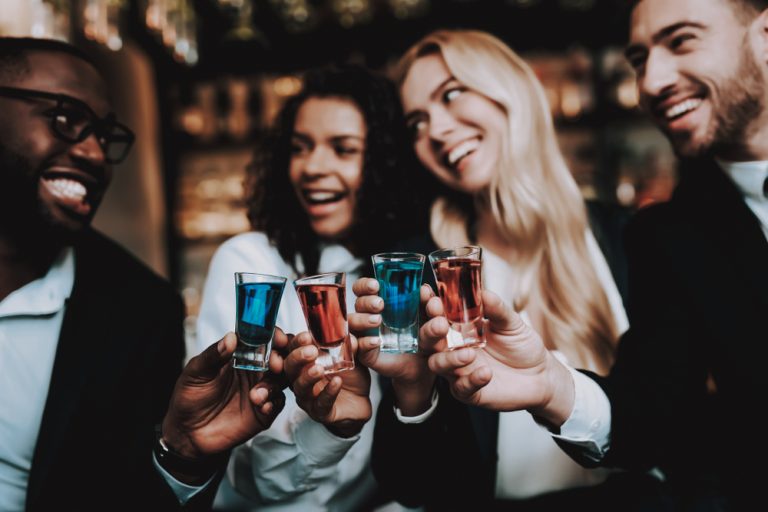
Living in a sober home teaches you valuable life skills that aid in your independence. You’ll learn financial responsibility by paying rent, time management by following the house schedule, https://www.animetank.ru/anime-osen-2011/ and self-care practices crucial for maintaining sobriety. These skills instill a sense of responsibility and prepare you for a successful transition to independent living.
- We also offer 2nd phase housing for those that have completed our program.
- This transition can provide continued support while residents learn to apply their newly learned self-reliant skills to real-life situations while they remain drug- or alcohol-free in a community environment.
- We provide transportation to get you to the most essential places you need to go – work, recovery fellowship meetings, community meetings, church and worship services, and the store.
- Here are other things that you can expect while residing in a sober living house.
How Much Do Sober Living Homes Cost?
Design For Recovery: Sober Living in Los Angeles, California
Los Angeles Sober living homes typically cost between $600 and $ 5,000 per month, depending on the amenities, location, and programs offered. Insurance does not usually cover these costs, but financial help from family or friends and sliding scale fees might be available in certain situations to assist with affordability. “The Nook is unlike any other sober living I’ve been to! The community, location and access to recovery has been a living changing experience.” We provide full transportation to recovery-related activities to ensure clients can take advantage of all their opportunities throughout sober living in Los Angeles area. Contact us or continue reading to see how Transcend Recovery Community’s LA sober living houses can assist you.
Young adults in Los Angeles and California face significant challenges related to addiction and mental health. It’s excellent for those who don’t have the best life at home and need somewhere safer to reside while growing strong. This collaborative approach both helps repair fractured relationships and equips families with tools to assist their loved ones in maintaining sobriety outside of our facilities. Many are in residential areas, making an effort to blend into a private living environment as much as possible. Also, it depends on whether the home is modestly equipped and furnished or if it provides luxurious amenities.
Haven House Sober Living in Los Angeles, California Since 2004
Armed guards patrolled the exits to keep people from leaving, the governor’s office said. Their deaths are not among the 40 fatalities tied directly to the facilities in medical examiner records. Assisted living facilities offer numerous benefits, including 24/7 care assistance, social activities, chef-prepared meals, housekeeping services, and transportation. They also provide a safe environment with emergency response systems and often offer specialized care programs for conditions like memory loss.
This allows residents to practice the skills they’ve learned during treatment in a supportive setting, preparing them for the eventual transition to independent living. Upon entering our sober living homes, residents are met with modern amenities, ensuring they feel at home. Embarking on the road to long-term recovery requires more than just detox and rehab. Entering sober living is crucial in ensuring a https://yourhealthmagazine.net/article/addiction/sober-houses-rules-that-you-should-follow/ smooth and resilient transition back into everyday life. Transitioning back to regular life after intensive addiction treatment can be daunting, even with newfound sobriety and resilience. Luxe Recovery bridges inpatient treatment and the return to everyday living in the bustling heart of Los Angeles.
Is a New Mississippi Law Decreasing Jailings of People Awaiting Mental Health Treatment? The State Doesn’t Know.
These facilities offer patients guidance, counseling, and supervision as they work to reintegrate into society and rebuild their lives. Harmony Place has three facilities based in Los Angeles, California, specializing in drug and alcohol addiction rehab. Our centers provide comprehensive treatments to individuals seeking recovery from substance abuse. With a focus on personalized recovery plans, we aim to help you achieve lasting sobriety and improve your overall well-being. The Last House Sober Living® offers structured sober living homes in the heart of West Los Angeles.
Transcend is a true recovery community serving the Los Angeles community since 2008 and offers many services that other LA sober living houses do not. Most facilities only provide a live-in manager, but we have found it to be of extreme importance to always have multiple staff members available to our clientele, 24/7. We have three full shifts of qualified staff, as well as an awake graveyard shift, to help monitor our patrons’ continual progression in their long-term recovery.
If you or a loved one needs assistance with addiction, reach out to us for more information about steps moving forward. If you or a loved one exits treatment and feels like they need more help before transitioning into the real world, a sober living home is the way to go. Those determined to hold on to their newfound recovery will love the benefits that a sober living home provides after a successful treatment session. Yes, we allow pets, and we’re proud to be one of the few sober living homes in LA that do. Bring your furry friends along as you embark on your journey to recovery with us.
Will My Health Insurance Cover the Cost of Sober Living Homes?
We connect residents with local 12-step meetings and other resources to create a supportive network that enhances the recovery journey. At Haven House Sober Living, we prioritize accountability and progress as key components of the recovery journey. We offer comprehensive measures to ensure residents stay on track toward their sobriety goals and continue making positive strides in their personal growth and well-being. The ORS Sober Living House reports an average length of stay of 254 days, with a standard error of 169 days.
Solheim Lutheran Programs
These facilities offer a high level of comfort, privacy, and personalized care, often in a serene and peaceful environment. Sober living houses in Los Angeles play a pivotal role in assisting individuals in overcoming addiction. These facilities provide a stable and supportive environment that is essential for recovery.
- We can refer you to sober living home in Los Angeles will put you close to places that will make you practice real-world skills.
- Sober living homes that adhere to stringent standa-rds, ensuring a safe and conducive environment.
- As on of the best sober living options in California, we are proud to proivde a supportive, recovery-focused environment that promotes both sobriety and mental health.
- The changes were not communicated beyond Snyder’s senior leadership team for nearly two years, according to documentation provided by an AHCCCS spokesperson.
- Discover how our luxury sober living homes in Los Angeles can help you maintain your sobriety in comfort.
A sober sober house living facility is an excellent way to practice being a real person in the world before actually moving to a place by yourself. We can refer you to sober living home in Los Angeles will put you close to places that will make you practice real-world skills. Many good things come with calling a sober living facility in Los Angeles home. You are right by lots of things to do, sandy beaches, yummy restaurants, and plenty of places to walk and get fresh air.
- Insurance does not usually cover these costs, but financial help from family or friends and sliding scale fees might be available in certain situations to assist with affordability.
- Monthly packages include 24-hour emergency support, weekly housekeeping, transportation services, and wellness programs.
- Weekly updates, mediation, and financial aid promote lasting healing & sobriety.
- Halfway houses typically operate under government oversight with stricter rules and a focus on shorter-term residency, often required as part of a judicial sentence or as a condition of early release.
It provides a structured living environment for individuals in recovery, focusing on maintaining sobriety and developing life skills. The costs are generally lower for those considering less intensive forms of treatment without residential care. Intensive outpatient programs, which offer more frequent services than standard outpatient care, cost an average of $3,582, adjusted to $4,939 in 2022. It’s essential to consider the cost and the level of care needed when choosing a treatment option.
Program Size
Our ultimate aim is to provide the support and structure our residents need to build a strong, sustainable recovery, regardless of the length of their stay with us. Our sober living program is designed to help you build essential life skills, foster meaningful relationships, and develop a strong foundation for long-term success in sobriety. With the support of our dedicated staff and your fellow residents, you’ll discover newfound confidence, resilience, and a renewed sense of purpose as you navigate the path to lasting recovery.
Sober Living Homes vs. Halfway Houses
Sober Living West offers a 12 step based sober housing program to men who are ready to change their lives and live clean and sober. Our Playa Del Rey based home provides the tools you need to rebuild your life from the ground up in a safe environment where you will be supported every step of the way by people who have been there before. Expect a structured, supportive environment where residents partake in recovery meetings, adhere to house rules, and engage in activities to fortify their journey toward sustained sobriety. The duration of stay in sober living homes in Los Angeles is often flexible to accommodate the varied recovery paths of residents. While some individuals find a few months sufficient, others benefit from a year or longer. Our premier sober living facilities in Los Angeles are meticulously designed to balance comfort, safety, and the structured support essential for ongoing recovery.
What Is The Abstinence Violation Effect AVE?

Recent studies have reported genetic associations with alcohol-related cognitions, including alcohol expectancies, drinking refusal self-efficacy, drinking motives, and implicit measures of alcohol-related motivation [51,52, ]. Overall, the body of research on genetic influences on relapse and related processes is nascent and virtually all findings require replication. Consistent with the broader literature, it can be anticipated that most genetic associations with relapse outcomes will be small in magnitude and potentially difficult to replicate.
- Treatment in this component involves describing the AVE, and working with the client to learn alternative coping skills for when a lapse occurs, such that a relapse is prevented.
- Learning healthy coping mechanisms can help you manage stress, cravings, and triggers without resorting to substance use.
- From this standpoint, an initial return to the target behavior after a period of volitional abstinence (a lapse) is seen not as a dead end, but as a fork in the road.
- Feelings of guilt, shame, and self-blame may lead people to question their ability to overcome addiction and exacerbate underlying issues of low self-esteem.
- Further, a randomized trial of olanzapine led to significantly improved drinking outcomes in DRD4 L but not DRD4 S individuals [100].
- This is a problem faced by many addicts and alcoholics, and it actually applies to more than just AVE.
- Marlatt, in particular, became well known for developing nonabstinence treatments, such as BASICS for college drinking (Marlatt et al., 1998) and Relapse Prevention (Marlatt & Gordon, 1985).
Theoretical and empirical rationale for nonabstinence treatment

Withdrawal tendencies can develop early in the course of addiction [25] and symptom profiles can vary based on stable intra-individual factors [63], suggesting the involvement of tonic processes. Despite serving as a chief diagnostic criterion, withdrawal often does not predict relapse, perhaps partly explaining its de-emphasis in contemporary motivational models of addiction [64]. However, recent studies show that withdrawal profiles are complex, multi-faceted and idiosyncratic, and that in the context of fine-grained analyses withdrawal indeed can predict relapse [64,65]. Such findings have contributed to renewed interest in negative reinforcement models of drug use [63].
Systematic reviews and large-scale treatment outcome studies
Many therapies (both behavioral and pharmacological) have been developed to help individuals cease or reduce addictive behaviors and it is critical to refine strategies for helping individuals maintain treatment goals. As noted by McLellan [138] and others [124], it is imperative that policy makers support adoption of treatments that incorporate a continuing care approach, such that addictions treatment is considered from a chronic (rather than acute) care perspective. Broad https://ecosoberhouse.com/ implementation of a continuing care approach will require policy change at numerous levels, including the adoption of long-term patient-based and provider-based strategies and contingencies to optimize and sustain treatment outcomes [139,140]. Specific intervention strategies include helping the person identify and cope with high-risk situations, eliminating myths regarding a drug’s effects, managing lapses, and addressing misperceptions about the relapse process.

Balanced lifestyle and Positive addiction
Despite the intense controversy, the Sobell’s high-profile research paved the way for additional studies of nonabstinence treatment for AUD in the 1980s and later (Blume, 2012; Sobell & Sobell, 1995). Marlatt, in particular, became well known for developing nonabstinence treatments, such as BASICS for college drinking (Marlatt et al., abstinence violation effect 1998) and Relapse Prevention (Marlatt & Gordon, 1985). Like the Sobells, Marlatt showed that reductions in drinking and harm were achievable in nonabstinence treatments (Marlatt & Witkiewitz, 2002). The AVE was introduced into the substance abuse literature within the context of the “relapse process” (Marlatt and Gordon 1985, p. 37).
The reformulated cognitive-behavioral model of relapse
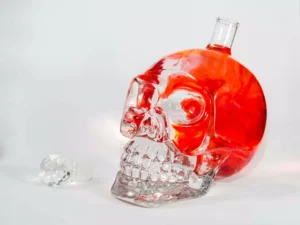
About 10% of individuals who report cannabis use in the past year meet criteria for a cannabis use disorder, while this proportion increases to 18%, 19%, 58%, and 65% of those with past year use of cocaine, opioids (misuse), methamphetamine, and heroin, respectively. These data suggest that non-disordered drug use is possible, even for a substantial portion of individuals who use drugs such as heroin (about 45%). However, they do not elucidate patterns of non-disordered use over time, nor the likelihood of maintaining drug use without developing a DUD. It is essential to understand what individuals with SUD are rejecting when they say they do not need treatment. In this model, treatment success is defined as achieving and sustaining total abstinence from alcohol and drugs, and readiness for treatment is conflated with commitment to abstinence (e.g., Harrell, Trenz, Scherer, Martins, & Latimer, 2013). Additionally, the system is punitive to those who do not achieve abstinence, as exemplified by the widespread practice of involuntary treatment discharge for those who return to use (White, Scott, Dennis, & Boyle, 2005).

4. Consequences of abstinence-only treatment
- Moreover, 87.1% of G allele carriers who received NTX were classified as having a good clinical outcome at study endpoint, versus 54.5% of Asn40 homozygotes who received NTX.
- Self-efficacy (SE), the perceived ability to enact a given behavior in a specified context [26], is a principal determinant of health behavior according to social-cognitive theories.
- Amanda Marinelli is a Board Certified psychiatric mental health nurse practitioner (PMHNP-BC) with over 10 years of experience in the field of mental health and substance abuse.
- Helping clients develop positive addictions or substitute indulgences (e.g. jogging, meditation, relaxation, exercise, hobbies, or creative tasks) also help to balance their lifestyle6.
- It occurs when the client perceives no intermediary step between a lapse and relapse i.e. since they have violated the rule of abstinence, “they may get most out” of the lapse5.
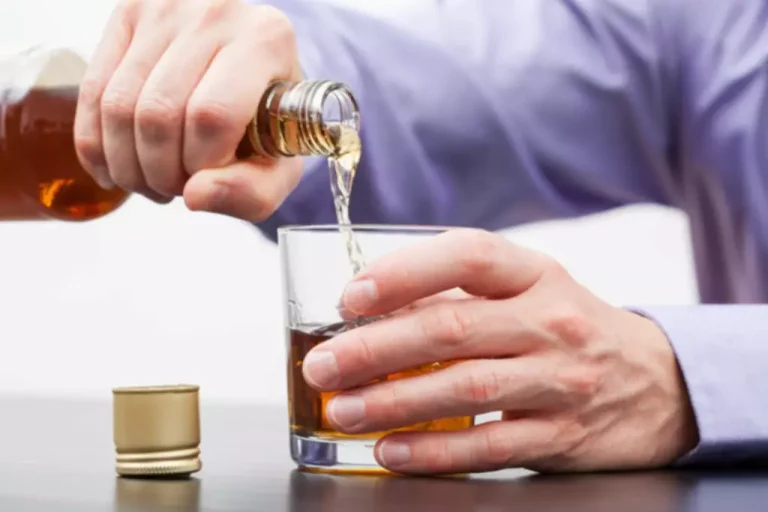
Gabapentin: Uses, Side Effects & Abuse
Gabapentin may cause dizziness and sleepiness and can impair your ability to safely drive. Do not drive or do other activities that require alertness or coordination like operating heavy machinery substance use group ideas until you know how gabapentin affects you. How long gabapentin may impair your ability to drive is unknown. Ask your healthcare provider when you can drive or do other activities.
- You should contact your care team if your seizures get worse or if you have any new types of seizures.
- Because the adverse events often occurred during the dose-increasing phase, and the dose was high, reducing the dose-increasing speed and lowering the dosage of gabapentin might reduce the risk.
- As its applications have broadened, there is a growing demand for interprofessional collaboration among primary care, neurology, anesthesiology, and other pertinent specialties.
- Your donation can make a difference in the future of healthcare.
- Such activities provide opportunities for socialization and decompression from the topics covered in treatments.
- Talk to your care team about the use of this medication in children.
Limitations of research associated with Gabapentin for sleep & insomnia
A doctor may adjust the strength or frequency of the medication to improve the side effects while still being able to get a therapeutic effect. Some studies report that gabapentin can cause erectile dysfunction in men. However, older studies also report cases of sexual dysfunction and loss of libido in women.
Find Addiction Treatment Facilities Near Me
That being said, let’s review some of the medications used for insomnia. Your donation can make a difference in the future of healthcare. Gabapentin may cause certain adverse effects, which are listed below. The right dosage will vary depending on the condition a person has and several other factors.
Cyclobenzaprine duration
A doctor can best advise about drug interactions and other safety considerations. The following are answers to some questions people frequently ask about gabapentin. Because gabapentin can cause drowsiness, anyone taking this drug should exercise caution while driving or using machinery. However, it is best to discuss this issue with a doctor before nursing. However, it is also essential to control seizures during pregnancy, so pregnant people should only take the drug if it is absolutely necessary. Gabapentin can interact with other prescription and over-the-counter (OTC) medications, vitamins, and herbal supplements.
What may interact with this medication?
The branded gabapentin enacarbil product Horizant is approved for restless legs syndrome and PHN. It takes about 2 to 3 hours for immediate-release gabapentin to reach its fullest effect, and it’s typically taken 3 times per day. To determine whether gabapentin is efficacious for the enhancement of sleep and/or treatment of insomnia, it is necessary to examine results from relevant studies [in which gabapentin was formally assessed as a sleep aid]. Included below is compilation of all relevant studies along with a brief summary of each. As of current, results from all available studies are consistent in suggesting that gabapentin is likely useful as a sleep enhancer and/or insomnia attenuator – across a variety of populations. Assuming you derive therapeutic hypnotic benefit from gabapentin, you may be curious to know the mechanism of action by which it modulates physiology to enhance sleep.
What side effects may I notice from receiving this medication?
It is possible to fatally overdose on gabapentin, both on its own or in conjunction with other drugs. However, there is currently no antidote that can be administered to someone in the case of a gabapentin overdose as there is with opioid overdoses. If you find a loved one showing signs of an overdose–drowsiness, muscle weakness, lethargy and drooping eyelids, diarrhea, and sedation—seek medical attention immediately. Because of the difficulty gallstones and alcohol of distinguishing false sleep disturbance from true ones in patients with medical illness, we were unable to exclude their contribution to the treatment efficacy. In addition, because of the limitations of the original trials, we were unable to conduct a meta-analysis of individual sleep outcomes and analyses related to treatment dose and timing or patient gender. Gabapentin withdrawal symptoms have been reported since the drug was approved.
Neurontin (gabapentin) is used to treat pain you may have from shingles (postherpetic nerve pain). It is also used with other seizure medicines for partial onset seizures in patients 3 years and older. Moreover, it is worth noting that pooled statistics were used with the basic premise of analyzing the efficacy of gabapentin. In this study, we introduced the concept of “composite endpoints” to pool sleep-outcome data that had similar significance and consistent direction.
PubMed was searched for all clinical trials related to the present research topic (up to November 8, 2015). The keywords selected from the Medical Subject Headings (MeSH) included intervention, study type, and endpoint event. The search range was “title/abstract/keywords.” No language restrictions were applied.
Additionally, most first-line hypnotics act through modulation of the GABA system, particularly by activating the GABA(A) receptor. Because gabapentin upregulates GABA production through interactions with glutamic acid decarboxylase and branched-chain aminotransferase, most would suspect that this yields greater activation of GABA receptors and suppresses CNS activity. In general, prescription gabapentin should be withdrawn gradually to help lower the risk for significant withdrawal symptoms. If you have epilepsy, stopping gabapentin suddenly can cause serious seizures that will not stop, known as status epilepticus.
If you’re having difficulty sleeping, talk to your healthcare provider. They can help determine the cause of your sleep problems and the best course of treatment. This may include lifestyle changes, such as regular exercise and improving sleep hygiene, or cognitive behavioral therapy for insomnia (CBT-i). signs you were roofied If these options aren’t helping, your doctor may recommend over-the-counter or prescription sleep aids. It’s important to note that the proper treatment options for you may not be suitable for everyone. Sleep problems can be complicated, and the appropriate treatment depends on the individual.
Thinking about taking a break from alcohol? Heres how to cut back or quit

“There is early evidence that even taking a one month break from fairly low levels of consumption reduces some burden on the liver,” White says. Have you ever noticed that you tend to have breakouts and redness after a night of drinking? Between the dehydration, lowered immunity, and hormonal changes from alcohol, drinking can wreak all kinds of havoc on your skin, leading to breakouts, inflammation , dryness, and more.
What happens when you stop drinking for 30 days

For a chemically interesting leaf like yerba mate, that includes how to prepare it in order to benefit from the plant’s psychoactive properties. Collins says there are a couple of tricks to curb your alcohol consumption — that way, you won’t suddenly be on https://ecosoberhouse.com/ your fourth or fifth drink without even realizing it. To slow down consumption, Collins recommends sipping, not guzzling. Additionally, she recommends adding in nonalcoholic beverages between that cocktail or beer and having food available when you drink.

What does drinking alcohol do to your body?
Depending on the person, Kumar said she sometimes suggests cutting back on alcohol to lose weight. For instance, Dasgupta cited research he conducted on the relationship between genetics and alcohol misuse. He noted that people of Chinese and Indian descent do not benefit from drinking alcohol due to a genetic reason that isn’t fully understood. Because the liver is a tolerant organ, he said positive changes can occur within weeks of going dry. Irina Gonzalez is the Content Marketing Manager at Tempest, a digital membership program that empowers you to quit drinking and live alcohol-free. She is also a freelance writer covering parenting, recovery, and Latinx culture and the creator of the Pandemic Mama podcast.

Thinking about taking a break from alcohol? Here’s how to cut back or quit
- You might run into obstacles along the way that tempt you to drink.
- The NIAAA Alcohol Treatment Navigator can help you recognize and find high quality treatment for alcohol use disorder.
- Recent evaluations of their Daybreak program – which includes one-on-one chats with health coaches – shows it leads to significant reductions in drinking, and improvements in physical and mental health.
“We came to a realization that we were drinking way too often and way too much,” says Zaleski. “And I know I wouldn’t be doing those things if I was still drinking.” Dasgupta said the best people to avoid alcohol always are those under 21 years old, and not just for legal reasons.
Healthy school lunches? A culinary medicine expert prescribes fresh, tasty strategies
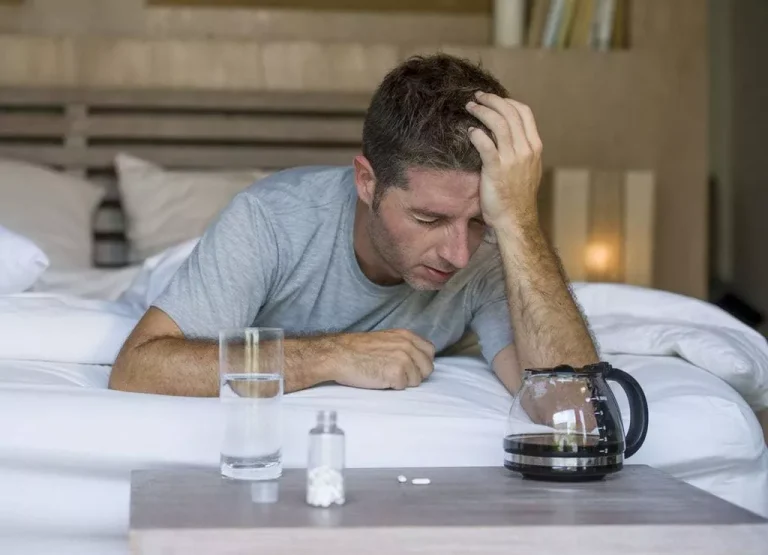
The NIAAA also offers pointers about resources for low- and no-cost treatment and support options, like getting in touch with your state’s agency for substance abuse help. Not too long ago, a group of women in a bar who were not drinking alcohol would have seemed kind of strange. According to the National Institute on Alcohol Abuse and Alcoholism, 86 percent of adults over 18 report having had an alcoholic drink or drinks at some point in their lifetime, and 56 percent say they’ve had alcohol in the past month. Still, abstaining from alcohol — on a short-term basis or longer term — is becoming more common. Symptoms can range from headache, elevated blood pressure, heart palpitations, and nausea and vomiting to tremors, hallucination and in severe cases death. While that amount is generally thought to be okay for your health, having more than that on a regular basis isn’t.
- “I was shocked and scared, and I wished it were just a dream.
- Within just a month of not drinking, your body can begin to reap the benefits.
- The insights gained while taking a break from alcohol can help guide better choices moving forward.
- On Tuesday, she sat for an interview in Philadelphia with members of the National Association of Black Journalists.
Americans Are Drinking More During The Pandemic. Here’s How To Cut Back
It can be hard to find (or even know) the balance of how much alcohol your body is able to handle. If you’re not sure if your drinking crosses a certain line or not, try measuring your alcohol intake. It’s easy how to take a break from drinking to lose track of how much alcohol you consume during the week. Craft beers and specialty cocktails may have a higher ABV, and restaurants and bars may add more alcohol or pour drinks in larger glasses.
- Nobody really knows why, he says, but it seems to be some kind of overcompensation for the time you lost.
- Think about why you are making changes to your drinking – to lose weight, feel healthier, save money, sleep better, or prevent that Sunday morning hangover.
- Waking up without the fatigue, malaise and other common symptoms of hangovers could greatly improve one’s quality of life.
- Instead of criticizing yourself for having a hard time or slipping up and having a drink, remember that no one’s perfect.
- Because the liver is a tolerant organ, he said positive changes can occur within weeks of going dry.
- The dry month is also an opportune time to examine your relationship with alcohol and decide if you might want to change your drinking habits to improve your health.
Dream of living at Costco? It’s getting closer to reality in South LA
If you’re an otherwise healthy person, Dr. Galligan says it should take your immune system just a few weeks to bounce back. “For psychologists, many of them are addiction-informed, and in their advertisements or on their websites they will mention that specifically,” Dr. Lembke said. To get started, try searching a directory like Psychology Today or Inclusive Therapists, both of which have filters you can use to look for specific support around substance use. If you’re a heavy drinker, you may need to wean off alcohol to let your body adjust. If you’re experiencing severe symptoms of alcohol withdrawal, be sure to talk to a healthcare provider.
That’s why many of us wonder if a month of avoiding drinking is enough to “reset” your liver back to normal. It’s true that taking a break from alcohol for any amount of time will be beneficial overall, with some research showing that liver function begins to improve in as little as two to three weeks. But a full detox is needed for the most benefit, and how much time that takes depends on a variety of personal factors. Several studies have shown that reducing or eliminating alcohol long term can significantly decrease the risk of cancer, as well as heart and liver problems. But even a short break can make a positive impact on your health by lowering blood pressure, reducing stress, improving sleep and, in some cases, losing weight.
Trending Nationally
Going “cold turkey” is generally safe for occasional to moderate drinkers who want to scale back. High-risk drinkers may require medical support for better outcomes with less withdrawal symptoms. Talk with your primary care provider about resources to help you meet your goal. Sleep also improves with a reduction in alcohol consumption. While people may enjoy a nightcap, thinking it helps them unwind, alcohol actually has the opposite effect – it causes fragmented sleep, which means you won’t get deep sleep and you’ll wake up more often.
I wasn’t weighed down with any desire for these small humans to be my friends. It occurred to me as I was driving the other day how few sporting events I attend, now that my kids are young adults with busy lives. Take our quiz to get your symptom score and start uncovering the why behind your symptoms. There are also certain foods like tea, fish and nuts that can benefit the liver’s function in many ways. Think of it as giving your liver a little boost in the right direction. “Nutrition therapy is very important in terms of feeding the liver and giving it the building blocks it needs to restore itself,” says Dr. Lindenmeyer.
Transforming Lives Through Affordable and Structured Sober Living
Our goal is to provide a sober living experience where residents may achieve a foundation of sustainable recovery. Living in a supportive communal environment, increasing the chances of achieving long term success and a purposeful life in recovery. Our recovery residences are managed by men and women with multiple years of sobriety, who participate in weekly leadership training and education classes. They are provided the tools https://getbestdrone.com/44-cool-devices-our-choose-of-the-best-new-tech-for-2023/ and knowledge to be successful leaders, and they provide guidance and structure within the homes. Purpose House Transitional Homes are Level II recovery residences certified with the Florida Association of Recovery Residences. While sober living houses have research touting their efficacy, it is also important to remember that they are still environments where you are living with others and the focus is on staying sober.

What to Know About the Sober Living House
Laurel started making calls, asking if they had an open spot. For years and years, Grant https://netref.ru/lajfhaki/hochu-spat.html had begged his mom to go to rehab. The first time she stayed sober for a month.
- Celebrate Recovery encourages fellowship, and we celebrate God’s healing power in our lives as we work our way along the road to recovery.
- Many hadn’t worked for some time, and it was difficult to find employment.
- If you would like to add a listing to our sober house directory, please let us know.
- While at an SLH, residents may be able to resume other aspects of their lives before recovery, such as work or family obligations.
- She entered upon her completing the program at Salvation Army in May of 2013 and was a resident for 10 months.
What Is A Sober Living House?

To support persons in recovery by improving their access to safe, stable residences with peer and community support. Our vision is adequate housing for all individuals in recovery from a substance use disorder. Research on sober living houses also states that residents https://www.vermiculite.org/resources/health-safety experience a higher possibility of securing employment and a lower likelihood of getting arrested. Halfway houses, also known as sober re-entry programs, tend to be more structured. Sometimes they are designed specifically for formerly incarcerated folks.
- Sober living homes are meant to be safe, supportive environments that emphasize the importance of building a community and camaraderie with others.
- The organization has a Code of Ethics and Standards of Operation.
- First, if you’re recently leaving a rehab stay or have just wrapped up an outpatient program, a sober living facility may provide you with the structure you need.
- Meetings were held both in the home and in neighboring organizations in the community.
Common Sober Living House Rules and Regulations
We’re expanding across the United States as our resources permit! If you would like to add a listing to our sober house directory, please let us know. Please contact us to update any listing information. We cannot guarantee accuracy of listing information. On Sunday evenings, all houses are required to attend Celebrate Recovery Sarasota. Celebrate Recovery, a faith-based 12-Step program, helps us to overcome our hurts, hang-ups and habits.

- One night in Galveston, Texas, gazing at the jagged rocks below, convinced if he jumped all his pain would vanish in an instant.
- For weeks Laurel couldn’t breathe without searing pain, a constant reminder of how close she’d come to never waking up.
- Research the home before you make a decision.
- He stopped lying, stopped cheating, stopped feeling like he had to be everything to everybody.
Transitional Housing and Sober Living in New York, NY: Find a Safe Place to Live and Recover
How Long Does Alcohol Stay in Your System?

We can help you or your loved one through the admissions process and begin recovering from addiction.
Make Some Changes to Your Diet
In our fast-paced world, where social gatherings often revolve around drinks, understanding how to flush alcohol from your system becomes crucial for maintaining good health. Alcohol, while socially acceptable and often enjoyable, can have significant impacts on our bodies. It’s not just about alleviating the symptoms of a hangover; it’s about aiding our bodies in recovering and detoxifying from the effects of alcohol consumption. This blog aims to provide practical, natural methods for detoxifying your body after drinking alcohol.

How Long Does It Take to Detox from Alcohol?
- This condition can damage familial relationships, which will have lifetime effects on the children who witness and experience abuse.
- Medical interventions may be necessary for individuals struggling with severe alcohol dependence or withdrawal symptoms.
- Once you consume alcohol, your body starts to break it down to eliminate it from your system, mainly through the liver.
According to a 2015 article, an estimated 50 percent of people with an alcohol use disorder go through withdrawal symptoms when they stop drinking. Doctors estimate that 3 to 5 percent of people will have severe symptoms. Some people experience a severe form of alcohol how to flush your system of alcohol withdrawal known as DTs. A person with this condition can have a very high heart rate, seizures, or a high body temperature. On the other hand, binge drinking is generally defined as four drinks for women and five drinks for men within a two-hour period.
Diet & Fitness

However, popular detox diets rarely identify the specific toxins they aim to remove or the mechanism by which they supposedly eliminate them. Licensed medical professionals review material we publish on our site. The material is not a substitute for qualified medical diagnoses, treatment, or advice.
Factors That Might Affect How Long Alcohol Stays in the Body

The best way to avoid detection is to abstain from alcohol altogether or to wait until it has completely left your system before taking a drug test. Trying to quit alcohol on your own is dangerous and will most likely be unsuccessful. Detox and withdrawal are one of the reasons people may put off seeking treatment.

- Those who drink on an empty stomach will feel the effects of alcohol more quickly.
- More sensitive or higher quality tests can pick up smaller amounts of alcohol.
- Nevertheless, while exercise will not help to sober a person up, they may become more aware after doing some exercise.
- None of these will speed up how your body detoxes from alcohol and none of them will affect a toxicology test – unless the herbal supplement shows up on the test.
- Antibiotic use, poor dental hygiene, and diet quality can all alter the bacterial balance in your gut (43, 44, 45).
- As you fall asleep at night, your liver gains enough time to metabolize all the alcohol in your body.